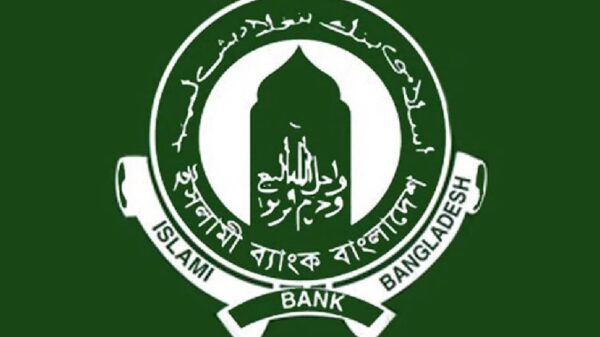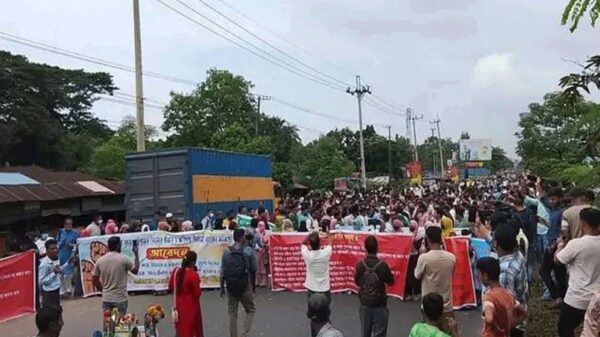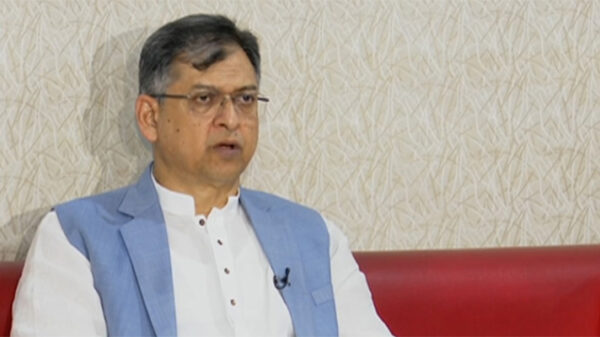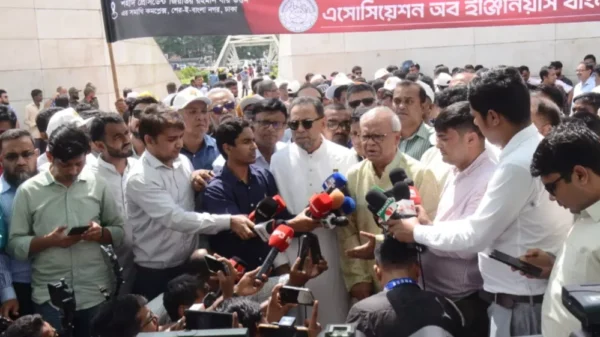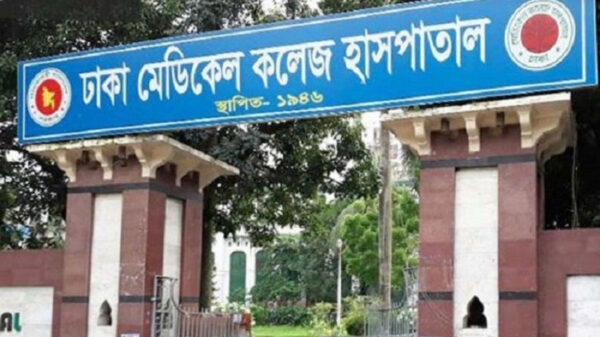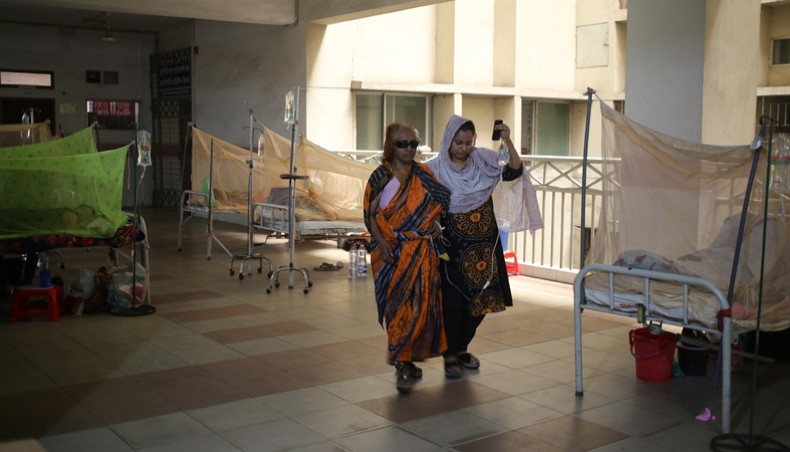Staff Reporter:
The sudden surge in dengue hospitalisation over the past five days has created a fear of a major dengue outbreak among the residents of the capital city and health experts.
Unplanned development activities together with a ‘favourable’ weather condition also alarmed experts that an outbreak this year might be potentially greater in other cities and towns than Dhaka.
Eighty dengue patients were hospitalised in the first five days of May, but the entire month of May in 2022 saw 163 dengue hospitalisations while the 2021 May figure was 43, according to the Directorate General of Health Services data.
National Malaria Elimination and Aedes Transmitted Diseases Control Programme deputy programme manager under the DGHS Md Ekramul Haque said, ‘Many scientists have informed us about a possible major dengue outbreak this year. We also have a similar fear. We have not seen such cases and deaths between January and May in the past 23 years. We have already recorded 11 dengue deaths. The dengue hospitalisation is four-five times higher this year. ’
He said that global warming, unplanned development, under-construction sites, collecting water due to water crisis would be the major reasons for a possible dengue outbreak.
DGHS data also showed that dengue cases increased in May in the past two years, with 2022 recording the highest dengue death toll and second-highest official hospitalisations since 2000 when the Bangladesh government started keeping the country’s dengue records.
The third-highest official dengue deaths and hospitalisations were recorded in 2021.
‘We found mostly women and children to be vulnerable in last year. We told the city corporations to increase their awareness activities in schools and ensuee community engagement in wards. We, too, worked to raise awareness among people during the post-monsoon household survey we carried out,’ Ekramul added.
He said that they had surveyed about 20 districts outside the capital and found the primary dengue vector, Aedes Aegypti, which was not supposed to be there at that time.
The DGHS post-monsoon Aedes Survey was conducted between January 26 and February 4 and it found 127 households positive out of 3,150 households under the Dhaka North City Corporation and the Dhaka South City Corporation.
According to Jahangirnagar University zoology professor and vector management expert Kabirul Bashar, the surge in cases in the beginning of May is much greater than usual, indicating a greater number of active breeding sources in Dhaka and outside.
‘Climate change, including intermittent rain, will increase dengue patients in the days to come. I think that we may face another dengue outbreak this year. And it may be bigger than in the past two years. Dengue cases outside the capital may also increase more compared to the previous years,’ he added.
Increasing unplanned development activities in rural areas, he went on to say, have created places where dengue mosquitoes thrive.
‘There is no alternative to destroying the breeding sources of Aedes mosquitoes along with raising awareness and alerting people to the need for the prevention of a possible outbreak,’ Kabirul said, adding that the authorities should start using insecticides within the next few days.
At least 281 people died of dengue while 62,382 were hospitalised with the disease in Bangladesh in 2022, DGHS data showed.
The respective figures in 2021 were 105 and 28,429, according to the DGHS.
While 352 people were hospitalised with dengue between January and May in 2022 in Bangladesh, 1,066 dengue patients were admitted to health facilities from January till May 5 this year, DGHS data further showed.
Of the total dengue hospitalisations this year, 575 were reported from the Dhaka city and 491 from other parts of the country.
According to epidemiologist AM Zakir Hussain, Aedes mosquitoes have apparently become used to hostile weather for they are now breeding in the hottest time of the year though they used to be known to breed between 16 and 25 degrees Celsius.
‘It is an alarming sign. Last year all four dengue serotypes were active whereas earlier only two serotypes could be found,’ he said.
The Bangladesh Meteorological Department said that the highest temperature remained largely above 30C since the middle of March but the lowest temperature remained around 20C.
‘We may find many patients of both classic dengue fever and dengue haemorrhagic fever,’ he added.
Former Dhaka Medical College principal and noted medicine specialist Khan Abul Kalam Azad urged the people for increasing awareness along with the city and municipal authorities to work seriously to destroy the breeding grounds.
‘People must consult doctors after having dengue symptoms. People who have kidney, heart, lung and liver complications should get admitted to hospital at the soonest after testing dengue positive,’ he added.
Asked about their activities in containing Aedes mosquitoes this year, Dhaka North City Corporation chief health officer Brigadier general Md Zobaidur Rahman told this correspondent to call him five minutes later.
But he did not later take the correspondent’s call despite several attempts.
DNCC chief executive officer Selim Reza, too, could not be reached for comments.
Dhaka South City Corporation chief health officer Fazle Shamsul Kabir and its chief executive officer could not be reached for comments either.
The highest monthly hospitalised dengue patients in 2022 were reported in October with 21,932 cases, followed by November with 19,334 cases, September with 9, 911 cases, December with 5,024 cases, August with 3,521 cases, July with 1,521 cases and June with 737 cases.
No death was reported between January and May 2022, one died in June, nine in July, 11 in August, 34 in September, 86 in October, 113 in November and 27 in December.
This year, the official death toll was 11 as of May 4, but no death toll was reported till the time in 2021 also.
The highest number of hospitalised dengue cases during a year in the country since 2000 was officially recorded at 1,01,354 in 2019.
Dengue outbreak was first officially reported in the country in 2000, when 5,551 dengue cases were hospitalised and 93 people died of the disease, according to DGHS data.


